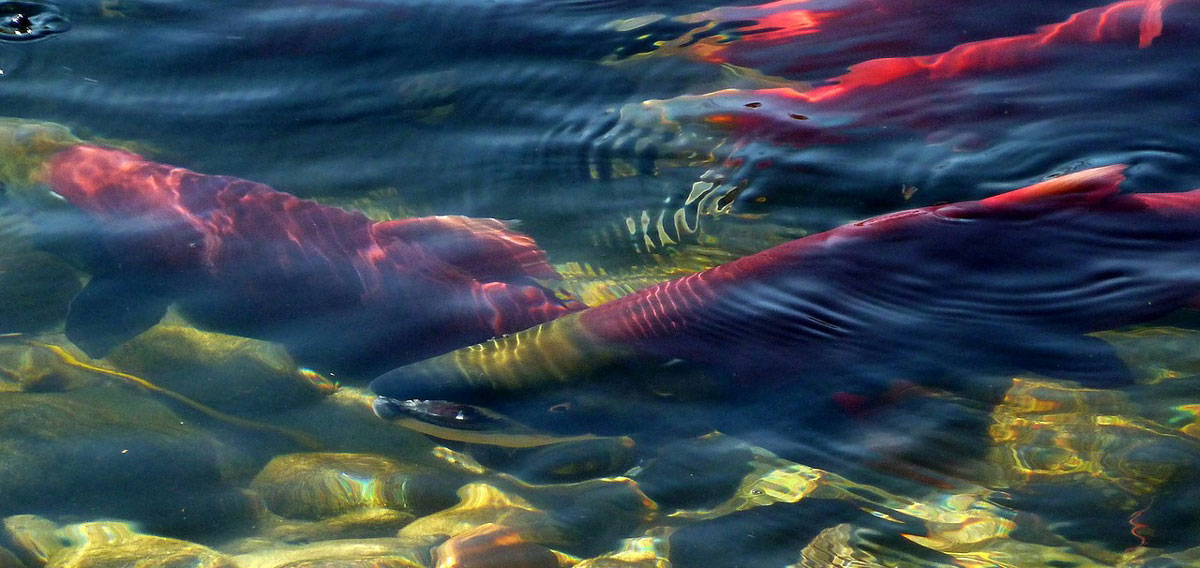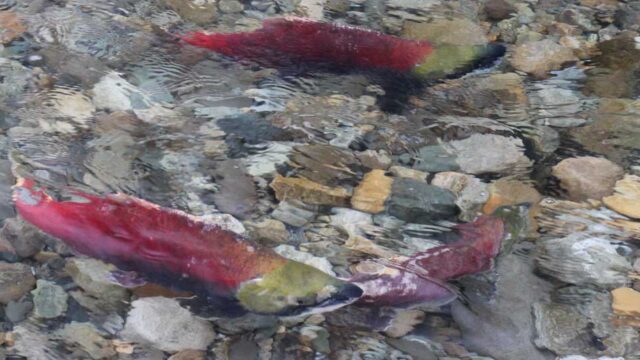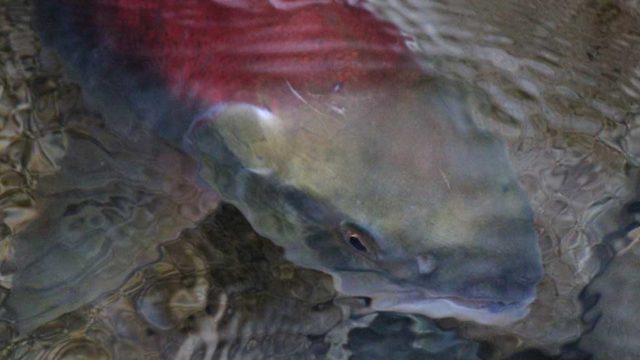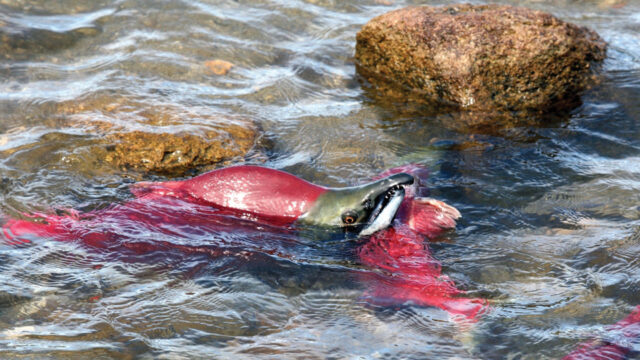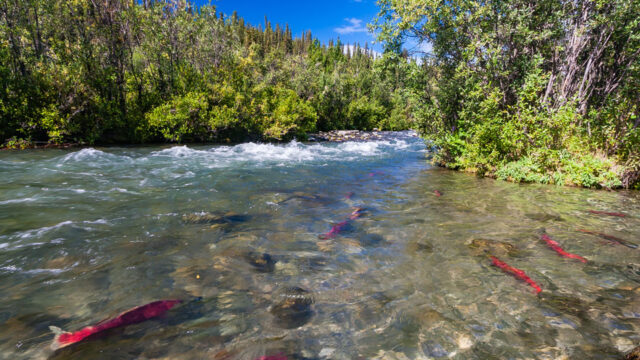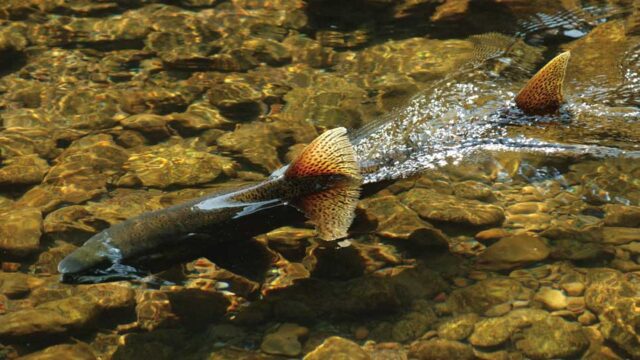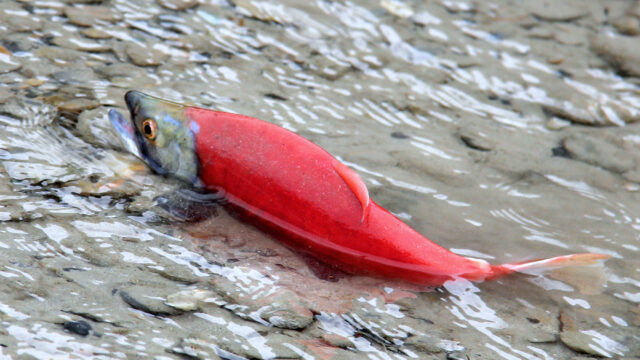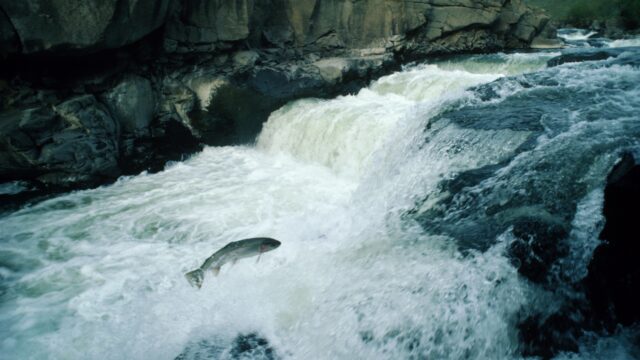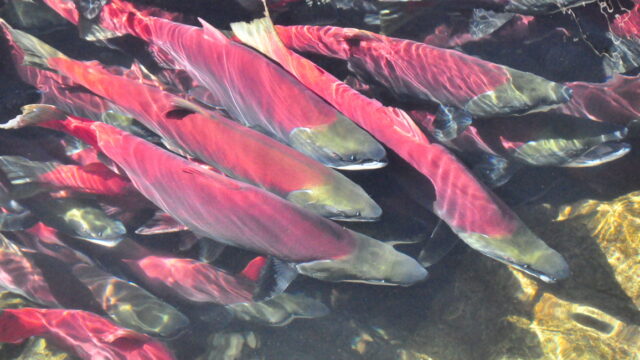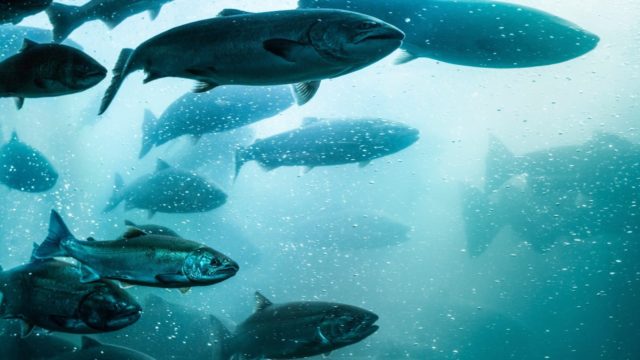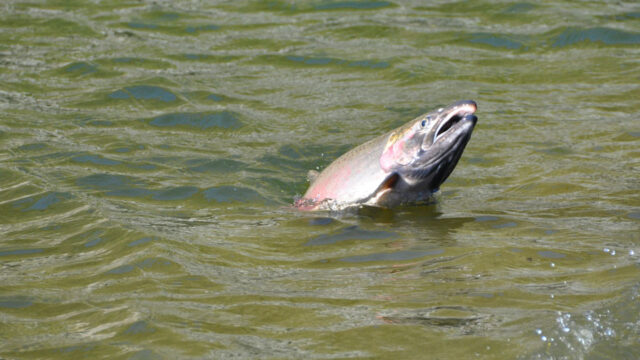The Minister of Fisheries and Oceans has a legal responsibility to protect wild salmon.
Ecojustice, on behalf of independent biologist Alexandra Morton, has scored several court victories in the fight to protect wild salmon from piscine orthoreovirus (PRV) — a virus that is prevalent in farmed Atlantic salmon.
Research shows that PRV is present in up to 80 per cent of farmed salmon. There is also mounting evidence that the highly-contagious virus could harm wild Pacific salmon. A 2018 peer-reviewed study co-authored by Department of Fisheries and Oceans (DFO) scientists found PRV can enter blood cells in Chinook salmon and ultimately cause them to burst, a condition that can result in liver and kidney damage, anemia, and even death.
Furthermore, scientists have identified PRV as the most likely cause of Heart and Skeletal Muscle Inflammation (HSMI), a severe disease that affects the muscle and heart of salmon. The disease HSMI has caused widespread harm in farm fish in Norway and Scotland.
Morton v. Canada (Fisheries and Oceans) 2015 F575
In 2013, biologist Alexandra Morton approached Ecojustice with allegations that aquaculture company Marine Harvest Inc. had transferred Atlantic salmon infected with PRV into net pens located along the Fraser River salmon migration route.
On behalf of our client, we sued DFO and argued that:
the DFO, as a government body with responsibility for ensuring the health of wild fish stocks, must take responsibility for determining when it is safe to transfer fish into net pens in the open ocean rather than off-load that responsibility to fish farm operators; and
the law clearly did not allow anyone to put fish in the ocean carrying diseases or disease agents that could harm the conservation and protection of wild fish.
In May 2015, the Federal Court struck down the aquaculture licence conditions that allowed Marine Harvest to decide whether to transfer fish infected with viruses into open pens in the ocean. The Court rejected DFO’s argument that its licence conditions were based on sound science about HSMI or other fish diseases, finding there was no evidence that DFO relies on science in issuing aquaculture licences.
Instead, after noting that “the weight of the expert evidence before this Court supports the view that PRV is the viral precursor to HSMI,” the Court accepted that transfers of farmed salmon infected with viruses like PRV may be harmful to the protection and conservation of fish – and thus contrary to the law.
DFO and Marine Harvest appealed the 2015 decision, but adjourned the appeal days before the hearing, in May 2016, when a federal scientist announced that HSMI had been detected on a fish farm in B.C. Despite this research, the Minister still refused to enforce testing for farm salmon prior to transfer into sea pens on wild salmon migration routes.
Morton v. Canada (Fisheries and Oceans) 2019 FC 143
In 2018, Ecojustice was back in Federal Court on behalf of Alex. This time, we argued that the Minister of Fisheries and Oceans’ policy and practice of allowing companies to transfer farmed salmon into open net pens in the ocean without first testing them for PRV was illegal.
Specifically, Ecojustice said, the minister’s practice contravened Section 56 of the Fishery (General) Regulations, which states that the minister cannot issue a transfer licence for fish that “have any disease or disease agent that may be harmful to the protection and conservation of fish.”
The Federal Court agreed.
In February 2019, the court ruled that the minister’s PRV policy is illegal for several reasons. Critically, it found that the PRV policy does not comply with the precautionary principle. This important principle says that, whenever possible, harm to human health and nature must be prevented before it happens — particularly in situations in which scientific understanding of potential risks is incomplete.
In its decision, the court gave the minister four months to come up with a new, precautionary, and science-based policy.

